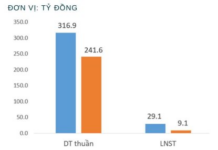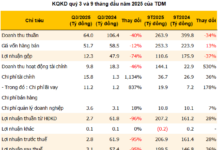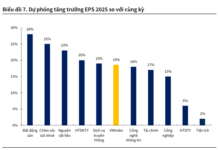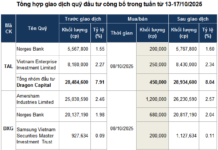The implementation of ESG helps the Bank control risks related to environmental factors and early realization of the goal of developing a green bank to level 5 by 2025.
With the mission of being a pioneer in digital transformation and green banking, Nam A Bank has gradually applied green practices in its operations. Typically, the deployment of green practices in operational activities; Nam A Bank has been responsible in its lending practices through environmental and social risk assessment and management for loans with an ESMS system that meets international standards and fully complies with Vietnamese law. In addition, Nam A Bank continues to increase the proportion of green credit in its investment portfolio by promoting green lending and issuing green bonds.
The term ESG refers to Environmental, Social, and Governance factors, which are used to assess an organization’s sustainability and impact. It is one of the key orientations that Nam A Bank has, is, and will continue to dedicate resources to in terms of both human capital and finances to organize, implement, and apply across its entire system.
From the perspective of a sustainable credit institution, Nam A Bank understands the importance of integrating ESG components into its risk management framework, in line with international standards and compliance with Vietnamese regulations. The Bank maintains the highest standards of business ethics, governance principles, accurate and transparent reporting, and a strong commitment to compliance with legal and governmental regulations, aiming for a healthy business environment that delivers sustainable value to customers, partners, and shareholders.
With professional advice and support from KPMG Tax and Advisory Ltd. Company, Nam A Bank officially implemented ESG in its operations. The collaboration with KPMG serves as a commitment to turning ESG ideas into concrete actions by perfecting ESG elements in the Bank’s practical activities.
A representative from KPMG stated that the implementation of ESG will assist Nam A Bank in managing potential risks related to environmental, social, and governance factors, enhancing its reputation and brand, and opening up new opportunities. This not only meets the increasing demands of the community and the market but also creates new opportunities for the bank to strengthen its competitive position, making a significant contribution to forming a positive and sustainable business environment.
Nam A Bank believes that focusing on environmental, social, and governance risk management – ESG is not just a trend but also a core value that plays a pivotal role in shaping the Bank’s vision and business strategy. It contributes to the government’s sustainable development goals, minimizes environmental impact, and meets the expectations of its customers.

Delegates taking a commemorative photo.
Capital Raising for Sustainable Growth
The trend of greening the economy is becoming increasingly popular worldwide, and Vietnam is no exception. As a result, the demand for green credit is also growing, aiming to promote the transition to a green economy and sustainable development. However, the domestic source of green credit is still limited, necessitating the need to expand the funding for this sector.
SeABank strengthens senior leadership team for sustainable growth
On February 23, 2024, the SeABank Board of Directors (BOD) issued resolutions to revamp its senior leadership team, aiming to vigorously implement the sustainable development strategy (ESG) with pillars focusing on Banking Governance, Risk Management, Enhancing Workforce Capability, Organizational Culture, Social Welfare, and Environmental Impact.








































